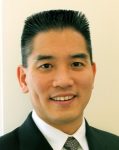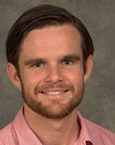Dr. Chris West, assistant professor in the School of Kinesiology, along with co-investigator Dr. Brian Kwon, professor in the Faculty of Medicine, have been awarded $1.926 million from the US Department of Defense to study how the functioning of the heart after a spinal cord injury can impact motor outcomes (i.e., ability to move parts of the body below the injury).
Drs. West and Kwon, both researchers with the ICORD spinal cord injury research centre in the UBC Faculty of Medicine and Vancouver Coastal Health Research Institute, will explore how the heart changes immediately at the time of injury and during the first hours-to-days after SCI. They will also investigate whether increasing the function of the heart improves spinal cord blood flow and motor outcomes.

Dr. Brian Kwon

Dr. Chris West
The current medical approach to SCI is to increase blood pressure in all patients to the same threshold. Although relatively simple, this approach has been shown to improve outcomes in some individuals but to be damaging in other individuals. This suggests that an individualized approach could see more success.
Dr. West explains, “We believe that part of the management of people with spinal cord injury, when they arrive at hospital, should be to increase the function of the heart back to what it was prior to injury such that blood flow to the injured spinal cord can be improved.”
Determining how the heart changes after SCI is the first step in assessing whether increasing heart function prevents loss of movement in people with spinal cord injury.
This research is being funded through a Translational Research Award by the Department of Defense Congressionally Directed Medical Research Programs, Spinal Cord Injury Research Program. The SCIRP was initiated in 2009 to provide support for research of exceptional scientific merit that has the potential to make a significant impact on improving the health and well-being of military Service Members, veterans, and other individuals living with spinal cord injury. The TRA specifically focuses on supporting research to accelerate the movement of promising ideas into clinical applications. More information about the program can be found at http://cdmrp.army.mil/scirp/default
ICORD is a world leading health research centre focused on spinal cord injury. From the lab-based cellular level of understanding injury to rehabilitation and recovery, our researchers are dedicated to the development and translation of more effective strategies to promote prevention, functional recovery, and improved quality of life after spinal cord injury. Located at Vancouver General Hospital in the Blusson Spinal Cord Centre, ICORD is supported by UBC Faculties of Medicine and Science, and Vancouver Coastal Health Research Institute. Visit www.icord.org.
The UBC School of Kinesiology is one of the top ranked programs in Canada and internationally and is among the most competitive admission programs at UBC. The School is unique in British Columbia for its commitment to the biological, behavioural, and sociocultural study of physical activity, sport, para-sport, and health. The broad scope of the School’s academic and research programs incorporates physical activity as a model to examine the full range of human function spanning molecular to whole system to society levels and as a basis for health promotion, disease prevention and treatment.
Cheryl Niamath
ICORD Communications & Admin Manager
604.675.8844
niamath@icord.org
Shannon Lambie and
Communications Coordinator
604.822.0950
shannon.lambie@ubc.ca